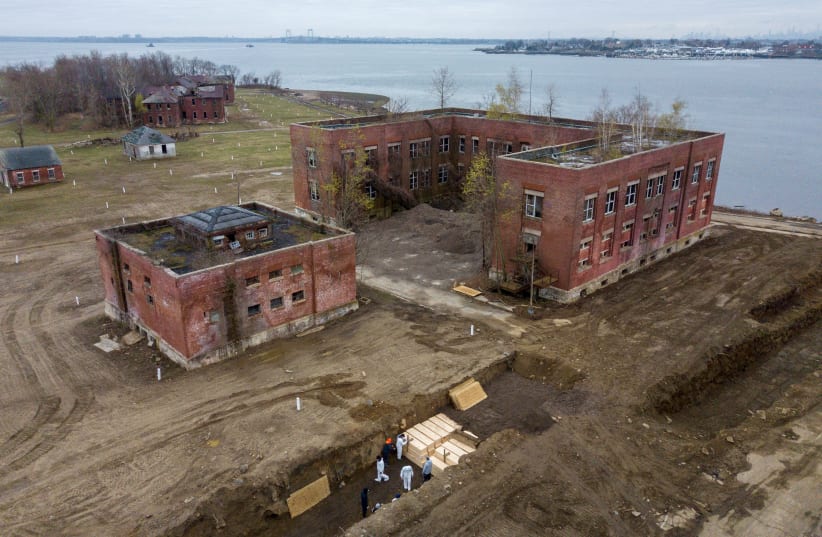From March 11 to May 2, a total of 24,172 deaths in excess of the seasonal expected baseline were reported in New York City. 13,831 of these deaths were confirmed as COVID-19 related, while another 5,048 were defined as probably related to the coronavirus disease, which would bring the count to 18,879. This left 5,293 "excess deaths" that were not defined as confirmed or probable COVID-19-associated deaths.
The CDC report found that the 5,293 "excess deaths" may have been directly or indirectly attributable to the outbreak. It is unclear how many of these deaths occurred in people who were infected with the novel coronavirus or were affected by indirect impacts of the pandemic.
The report stressed that monitoring the causes of all deaths and "excess deaths" allows a "faster and more inclusive measure of the pandemic’s impact on mortality than does relying only on national COVID-19 reporting mechanisms."
"Tracking excess mortality is important to understanding the contribution to the death rate from both COVID-19 disease and the lack of availability of care for non-COVID conditions," explained the CDC report.The coronavirus pandemic has affected the entire healthcare system, making access to normally available care more difficult due to social distancing regulations and precautions at medical centers.
Cancer surgeries and organ transplants are being delayed throughout the world as hospitals focus on treating coronavirus patients, pushing off some lifesaving operations.
In the US, the American College of Surgeons recommended on March 13 that physicians halt all nonessential procedures, according to ProPublica. Elective surgeries include any surgery that is scheduled, meaning that cancer surgeries, organ transplants and other lifesaving procedures are being delayed under the new recommendations.
Hospitals with heavy COVID-19 caseloads are being urged to avoid all surgical procedures unless the patient is likely to die within the next few hours or days, unless delaying the treatment would harm the patient.
The delays aren't always due to a lack of capacity, but rather a side effect of a lack of protective equipment being redirected to those treating coronavirus patients. Ventilators and ICU beds are being reserved for patients with the virus, and doctors are concerned about immunocompromised patients entering hospitals where they could be exposed to the virus.
“I think this is incomparable to anything that we’ve experienced before,” Dr. Emily Blumberg, president of the American Society of Transplantation, told NBC News. “We’ve always been very concerned about the safety of the organ donor pool, and we pay a lot of attention to lots of things to make that safer. This is a whole different level of concern.”
Dr. Howard Huang, the medical director of the lung transplant program at Houston Methodist Hospital, added that the inability to rapidly test for the coronavirus makes matters more complicated, as doctors have to weigh the risks of waiting to do a transplant against the risks of importing the coronavirus into a transplant center.
"That would basically, in one swoop, disable your ability to do transplants," Huang told NBC News.
A great deal of uncertainty remains concerning when surgeries will be able to be rescheduled.
A backlog of surgeries is likely to build up as well, according to ProPublica, as over a million people usually have some form of surgery every month. Preventive measures such as mammograms, prostate cancer screenings, stress tests and cardiac checkups are also being delayed.
“At this point, we’re only diagnosing people who have symptoms – for breast cancer, it’s if someone feels a mass; for colon, someone has bleeding,” said Cardoza. “We’re going to pick up the late ones, but the early detection we try to do is going to go by the wayside. All these ripple effects are just incomprehensible.”
